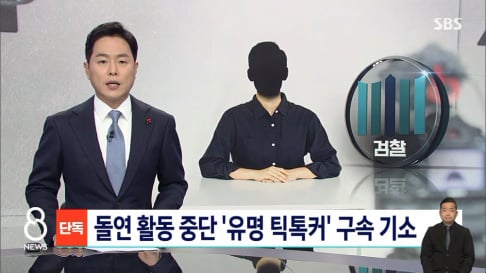
Recent evidence shows that China has been manipulating comments on Naver, South Korea's largest internet portal.
A security research team found that many of these comments aimed to praise China and belittle South Korea.
They also tried to create conflicts among Koreans based on region, age, and gender. From September to November of this year alone, a staggering 30,000 cases were documented. This indicates a widespread effort by China to disrupt and sway public opinion in South Korea. Due to the seriousness of these findings, the National Intelligence Service is now closely watching these activities and actively monitoring comment activity.

On December 21, Professor Yoon Min Woo of Gachon University's Police and Security Studies department announced that his team had confirmed China's involvement in manipulating comments on Naver. They used extensive data analysis and web crawling (a method to gather data) to examine comments on news articles related to China and diplomacy from September to November. This extensive research helped them understand how these comments were systematically orchestrated.
The research team pinpointed over 50 accounts engaging in suspicious comment activities, exhibiting characteristics consistent with China's organized commenting efforts. These accounts exhibited behaviors similar to those identified by the U.S. State Department's Global Engagement Center (GEC) and the European External Action Service (EEAS) when they track accounts disseminating "foreign malevolent information." The accounts shared several characteristics: they often used Chinese sounds or grammar in their usernames, mentioned things like "COVID-19 origin theory," made similar spelling mistakes, and sometimes included Chinese words in their comments. They also tended to follow each other to increase their presence and impact online.

The comments predominantly propagated the notion of Chinese superiority while aiming to denigrate Korea. For instance, the account 'toas****,' responsible for 12,089 comments, asserted, "Gyeongbokgung is also a cultural asset of Chinese civilization" and "Those against China are all pro-Japanese collaborators."
Responding to an article about China closing the Ahn Jung Geun exhibition hall in the Lushun Prison Museum, the account claimed, "Ahn Jung Geun is a murderer. Killing Ito Hirobumi led to the downfall of Korea," and "Anti-China (cyber diplomatic envoys) groups are like Nazi extremists."
Many of the posts aimed to stir up hate and disputes, including insulting comments about certain areas and creating arguments/conflict between genders. The account 'Chis***' made comments like, "Korean women eat like pigs and never exercise," while 'mich***' stated, "When women take power, the country goes downhill," and "Gyeongsang Province blames men every day." 'toas****' included comments criticizing regions, asserting, "Jeju people now speak Seoul dialect and have become civilized, but Gyeongsang and Jeolla provinces still use strange language and are uncivilized."

The research team explained that it's not yet certain if these commenting accounts are linked to the Chinese government or public security bodies. To confirm this, they would need help from internet service providers and law enforcement, which makes tracing these accounts difficult.
Despite these challenges, the team pointed out that considering the content (which praises the Chinese Communist Party), the organized way these accounts follow each other, and the use of Chinese in the comments, it's hard to believe these are comments from regular people. Professor Yoon explained, "The findings of our research indicate that China is actively engaging in influence campaigns within news comments and social media, aiming to disrupt domestic policy-making and mold public opinion in their favor. It is imperative that we respond swiftly with appropriate legislative and organizational strategies to mitigate this threat."
Shin So Hyun, a research fellow at the Asan Institute for Policy Studies, emphasized the critical need to address foreign influence operations to prevent unwarranted interference in public opinion formation and policy decision-making processes. She underscored the necessity of informing the public about the nature of foreign influence operations and enhancing democratic control and transparency through legislative revisions.
 SHARE
SHARE









































Russia does the same in Europe and in The US.
5 more replies